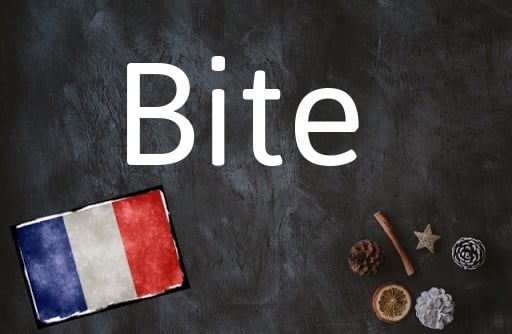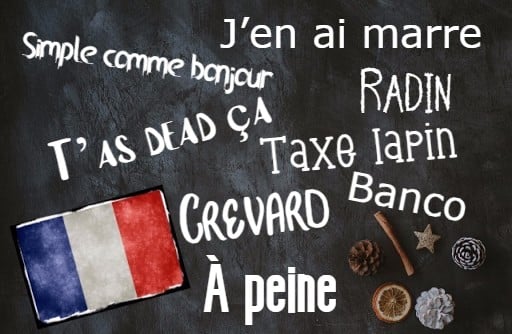Why do I need to know bite?
Because if you’re going to mix English and French you need to be sure you’re not unintentionally saying something very rude.
What does it mean?
Une bite in French is a slang term for penis, similar to ‘cock’ or ‘dick’ in English and it’s pronounced ‘beet’.
It’s widely used in casual French among friends but very definitely isn’t something that you would say in front of your boss, your French mother-in-law or any passing nuns.
Unlike its English equivalents, it’s not really used as an insult, so you wouldn’t call someone une bite, it’s used specifically to refer to the male body part.
The same spelling as the English verb bite (mordre in French) makes this word a bit of a minefield, as for example at Marks & Spencer’s Paris branches, where all products are sold untranslated, so that this box of sweet treats would be read in French as ‘millionaire’s little pricks’.

(Although if for any reason you ever wanted to say that in French, the correct expression would be les petites bites du millionnaire).
Or the below infamous advert for a range of frozen snacks, where the attempt to introduce an air of sophistication by using a random French word results in an advert that says ‘little cocks, big compliments’.

Use it like this
La sex tape du politicien nous a appris une chose : il a une très grosse bite – One thing we learned from the politician’s sex tape; he has a really big penis.



 Please whitelist us to continue reading.
Please whitelist us to continue reading.
Member comments